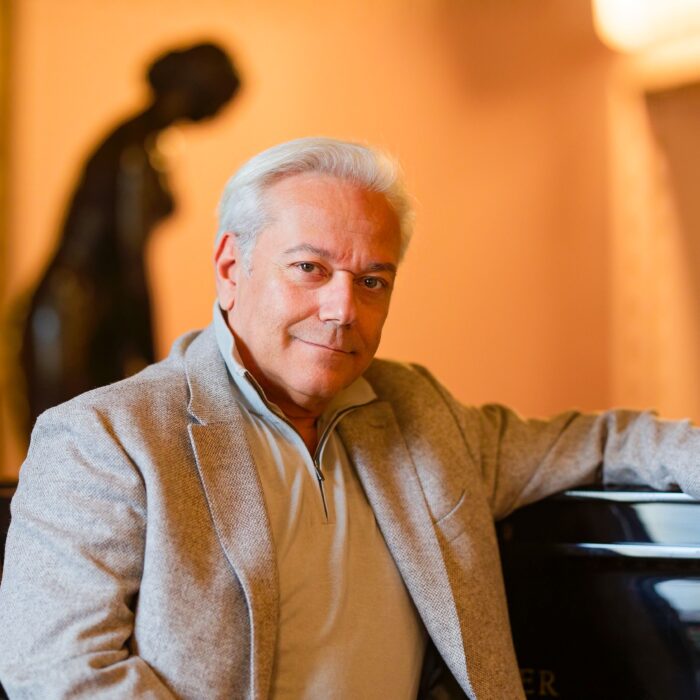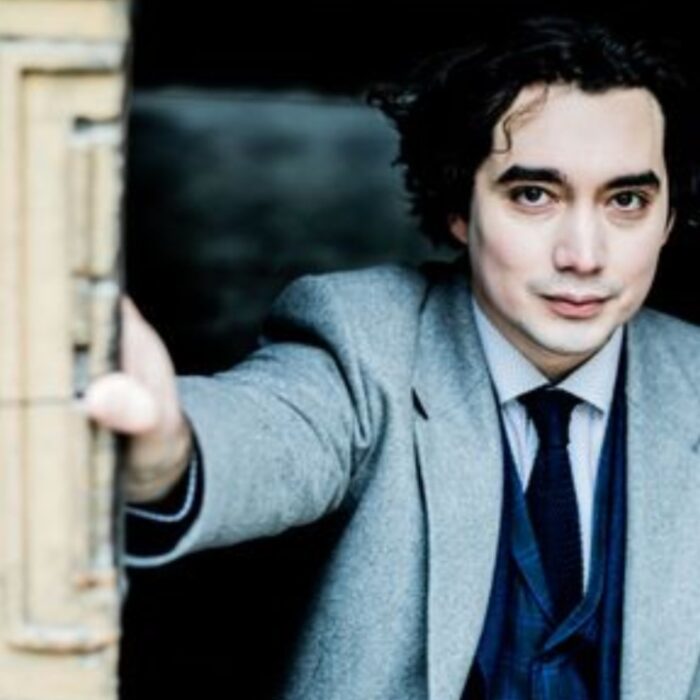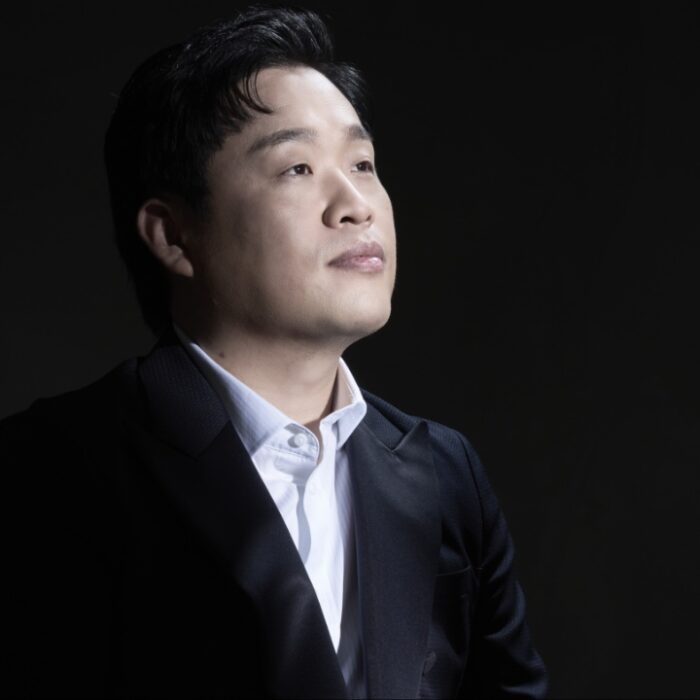
Q & A: American Soprano Jane Marsh on Her Career & How to Magnetize What You Want in Your Own Career
By Nancy SpadaWhen Jane Marsh made her Italian and European début at the Festival of Two Worlds in Spoleto, Italy singing the demanding part of Desdemona in Giuseppe Verdi’s “Otello,” she was just past her teens. She had been recommended to Thomas Schippers by the Metropolitan Opera as he was looking for a soprano to sing the role for the opening of the Spoleto Festival in his new production there. Schippers asked Jane to come to New York’s Carnegie Hall and sing the entire role of Desdemona for him on the main stage. After she finished singing, and before Schippers could even open his mouth, a whole court of enthusiastic listeners sprang to their feet saying, “You’ve got to engage this girl!” Schippers looked at her and then called loudly to her onstage, so all could hear, “Great singing, you’re hired!”
It was a beginning that bode well for her future as an operatic performer. It was an extraordinarily significant début.
The remarkable number of awards Jane has gathered becomes a very impressive collection, indeed a litany, in addition to her television appearances in both the United States and Europe.
Her absolute and profound understanding of the human voice, her vast repertoire, her knowledge of several languages, her comprehension of stage presence, her understanding of the role and perception of the score, all make Jane Marsh a precious resource for learning for those who are capable of doing so.
Certainly, a career such as her’s is clearly impossible to condense into these few pages herewith but at least a foretaste of what she has achieved and is continuing to accomplish can be of interest not only to so many up-and-coming singers but also to music-loving audiences.
Her impressive experience certainly cannot be elaborated on in detail here but it is well worth consulting her website if only to have some insight or a glimpse into what being a great diva is all about and what it takes to achieve this. Being American certainly did not stop Marsh from competing and winning the Gold Medal, the first singer to do so, in the International Tchaikovsky Competition in Moscow, a country that was, at that time, perceived as the foremost adversary of the United States. It must have taken a great deal of courage, determination, and skill at such a young age to engage in this adventure.
She has performed with huge success under the baton of numerous outstanding conductors such as: Leinsdorf, Ormandy, Maazel in addition to von Karajan, Böhm, Ozawa, Bernstein, Schippers, and von Matacic. She has appeared on so many Television and radio programs both in the States and in Europe that it would be of some difficulty to enumerate all of them here.
Marsh has also held multilingual Master Classes in the United States and Europe including showcase classes on Mozart & Salieri, Verdi & Bel Canto and Mahler & Vernacular Composers in Performance presented during the European Mozart Weeks in Italy and Germany in 2008, and in 2014, 2016 and 2019 during a recital tour of Croatia and Italy, and most recently for the CUNY Graduate Center, New York. She has been Artistic Advisor & Program Consultant for the successful Met Opera Guild, as well as an Adjunct Professor at Hunter College and the San Francisco State University.
Jane continues her brilliant musical journey now by addressing the problems of young singers and helping them to overcome certain performance situations for which she unquestionably has the background to advise them on.
OperaWire visits with Jane Marsh to learn more.
OperaWire: Were you born into a musical family or did you just perceive your attraction to music on your own?
Jane Marsh: My attraction to music was the result of a latent talent that bubbled to the surface, leading music and singing to ascend majorly into me and my total existence. Others have experienced this, but it is rare and surely not the norm.
OW: How did your journey in music begin? Did you study another instrument as a child?
JM: My initial participation in music goes back to the last semester of high school, when college-track students were given a choice between two of the school’s electives: the school’s Chorus or the school’s Art Class. I decided to try the school’s Chorus, as I simply thought it would be a fun interaction with school friends.
OW: Who or what have been the most important influences in your musical life and career?
JM: Tantamount has been my understanding that knowing roles prior to receiving offers is important, but golden is understanding that knowing roles before offers appear magnetizes the roles to you. Conductors Leinsdorf, Szell, Ormandy, Schippers, Bernstein, von Karajan and Schick have been valuable influences, not to mention my Gold Medal as First Singer to win the International Tchaikovsky Vocal Competition.
OW: What inspired you to become an opera singer?
JM: Inspiration was transmitted to me by an overall interest of teachers who saw something out-of-the-ordinary in me, and, as a result, the passion for singing opera took me by storm. Though, I must say that singing per se has been the real Alpha Inspiration here. I’ve gone along for the ride.
OW: You were very young, so were you still in college when you were catapulted onto the international stage to perform the role of Desdemona in Verdi’s Otello?
JM: I was still in college when George Schick, of the Metrpolitan Opera, requested that I sing for conductor Thomas Schippers and I was then chosen by Schippers to sing Desdemona in the production of Verdi’s “Otello” at Italy’s Festival of Two Worlds, but I was out of school when the performances took place.
OW: It is surely quite a demanding role in which one needs to command the stage. What are your memories of this debut performance?
JM: Conductor Thomas Schippers’s first hand at directing Verdi’s “Otello” was not the most memorable, but his conducting of the production was an utter joy. Singing Desdemona with Schippers allowed me the connection to international audiences and opera administrations and the interaction with opera stars. It opened doors for me into the major Italian opera houses.
OW: You were cast for your American opera debut with the San Francisco Opera in the principal role of Pamina, a role for which you were very highly praised, in their production of “Die Zauberflöte.” A highlight of your rendition was your aria “Ach ich fühl’s” that revealed the vocal control requisite of a successful singer of Mozart’s operas. How did you deal with so much success at such a young age?
JM: Success for me has been a fabulously exhilarating challenge. My eye has been on distinctively personal performing and as a conduit to positively affecting others. I was initially cast as Pamina with the mindset of Viennese taste. General Opera Directors Kurt Herbert Adler’s and Rudolf Bing’s taste was the result of a former Viennese era of Pamina casting, with drama in the voice plus the needed “spin of dynamics and vocal colors” intended by Mozart. I loved singing the role in major German and Austrian opera houses and festivals. The public responded favorably to the subtle thrust of drama I offered in Pamina, while continuing to showcase lyrical vocal colors. Our opera directors of today might consider bringing this idea into contemporary Pamina casting—Tamino casting as well— still keeping the character innocence in mind.
OW: You were invited by the White House to represent the U.S. in the International Tchaikovsky Competition. How did this come about?
JM: I had been requested by my college voice teacher, Ellen Repp, to compete in the Metropolitan Opera Auditions. As a result of the auditions, I was offered a contract at the Met, but declined as I was still in college. The Met, however, took me in hand directly after the auditions, and introduced me to several major conductors looking for a soprano for their individual projects. They all engaged me. Thomas Schippers was among them! Thereafter, all of these conductors had been assembled as search committee, to suggest singers to compete in the first ever International Tchaikovsky Vocal Competition, in Russia. They all suggested me to compete in Russia. I was then officially informed by a formal letter.
OW: Was it, in a certain way, after all there was still the Iron curtain, a chilling experience?
JM: The Russians had boundaries and I observed them, while keeping laser focus on my function in the competition. Competing in the International Tchaikovsky Vocal Competition was an elating experience. I worked exceedingly hard, despite having contracted tonsillitis while competing. My goal orientation, in the whole experience, never wavered and this kept a positive and buoyant resilience afloat in me. I feel my attitude contributed largely to my winning the Gold Medal.
OW: You have also made numerous appearances on American Television shows with Johnny Carson, Mike Douglas, and Merv Griffin to name only a few. Were these appearances connected to your Tchaikovsky Competition win?
JM: My appearances on the Variety Shows, where I sang the likes of Hollywood Palace, The Red Skelton Show, among some others, were in direct correlation to my Gold Medal win in Russia. The Talk Shows, among them Art Buchwald, Mike Douglas, Johnny Carson, and Merv Griffin, were a combination of performances in and out of New York, of world premieres, concerts and television here and abroad. The pleasure to have performed with the likes of Bing Crosby, George Burns, The Mamas & the Papas, Sid Caesar, Paul Anka, Joan Fontaine, et al was huge.
OW: Reading about your impressive successes in many different areas is just about overwhelming. Looking back, do you have any preferences about these appearances? In other words, were there some that you consider now more to your liking than others? Your favorite?
JM: I loved doing all television shows and I still love television, and naturally the honor of the Gold Medal in Russia and performances in the world’s great opera houses wins too. But my first major Recital in Vienna’s Musikverein, of all German Lieder with the theme of Advent & Christmas, was incredibly successful and memorable.
OW: There is, as mentioned, a wealth of information about you on your website but what is the one quality above all you would choose to impart to young singers or is this difficult if not impossible?
JM: Besides the voice, energy and self-esteem are the two major factors required in focused success. Resting on spontaneity alone can threaten a constant “stand out” standard. Early, organized practice need be the mantra in building a reliable self-esteem. But remember, particularly with new repertoire, the process tends to get worse before better. Knowing this, don’t allow this to threaten self-esteem and singer “mojo.” Reliable and constant goal orientation in practice, allowing time for the process to turn around and move forward, is paramount and will lead to artistic prowess. The singer needs the voice, but the voice needs the singer!
OW: Your favorite opera roles?
JM: This is usually answered with the role one is working on at the time one is asked, but, despite performing numerous roles and styles, I find Verdi’s Leonoras, in “Il Trovatore” and “La Forza del Destino,” and Mozart’s Donna Elvira, in “Don Giovanni,” plus Bellini’s Norma, to have brought me particular pleasure and success.
OW: Your repertoire is exceedingly extensive with nearly every composer conceivable represented but perhaps one of the most out of the ordinary performances was Mendelssohn’s “Elijah,” which marked your orchestral debut with the New York Philharmonic, where you were required, unusually, to memorize the entire oratorio. Can you recount something of this intriguing episode?
JM: When I sang for conductor Thomas Schippers, I didn’t have management at the time. Thomas Schippers not only offered me Desdemona in the opening of the Festival of Two Worlds in Verdi’s “Otello,” but offered me my debut with the NY Philharmonic in Mendelssohn’s “Elijah.” Thomas Schippers was big with the Philharmonic and the performances attracted much attention and success. Having to memorize the score was an original take, but it led to a successful endeavor. Memorable were the seven attending managers who handed me their cards for management. I had the challenge of choosing the most influential management of the group, which was, at the time, the then all-powerful Columbia Artists Management, Inc.
OW: You have performed such a vast number of operas. Do you have a preferred opera composer?
JM: I would have to say that Giuseppe Verdi wins here. I seem to answer technical and stylistic prerequisites for singing Verdi, so I have met the vocal and interpretive challenges with an understanding and overall insight into Verdi.
OW: Not only have you translated for selected publications but you have also tried your hand in cookery with some superb recipes which can be found on your website. How did you become interested in this subject?
JM: Cooking is creative and I have long felt that combining colorful sketches of opera characters in opera scenes with recipes and wines from each character’s country location could well prove to be an inventively profitable coffee table cookbook. This could produce a rather original path to the general public as well as opera shops, but also to sales in universal bookstores.
OW: You’re also known to be a keen horsewoman. How did you acquire the unusual title “Diva Who Busts Broncos” bestowed on you by Life Magazine?
JM: I was a member of the 4-H Club and I had my own horse. Girls from 4-H were allowed to participate in bareback riding of bucking broncos in rodeos. This is not an easy task, but I was able to stay on the bucking horse for the required eight seconds. Life Magazine informed itself about this and, in its story about me, the title “Diva Who Busts Broncos” was part of the result.
OW: If you could go back what, if anything, would you change in your long and fruitful career?
JM: I would change having signed a contract with the then preeminent Columbia Artists Management Inc., after my debut with the NY Philharmonic, to a contractual agreement with S. Hurok Presents. After Mendelssohn’s “Elijah,” prior to the invitation to compete in the International Tchaikovsky Competition’s Vocal Category, I was unaware that in five months my life would majorly change with my winning the Gold Medal. Immediately after my win in Russia, the first people to approach me were the renowned judges, teacher-composer Nadia Boulanger and Bass-Baritone George London, plus the desired office of S. Hurok Presents. I was unable to accept the Hurok management’s agreement offer having five months earlier signed an agreement with CAMI, the CAMI arrangement led to my awareness of overwhelming universal intercarrier-managerial-politics that forced me to find a personal strength to take career reigns in hand.
OW: What are your plans for your future work?
JM: I have begun several Master Class Series in Manhattan locations, and I am programming projects yearly for interesting and thematic Vocal Showcases. Additionally, I find my career consultations, with new artists and experienced artists, a help to new artists entering the profession, as well as experienced artists who have, for one reason or another, fallen off the band wagon. Important to keep in mind is that two formats are significant here. One doesn’t restart an experienced career from square one.



